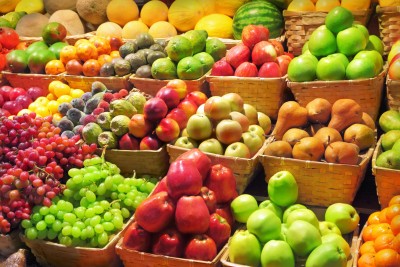By Oliva Wilson
Staff writer for Wake Up World
Gardening is more than just a hobby or a means to beautify your outdoor space. It is a profound gateway to a deeper connection with the environment and an elevated state of consciousness. This article explores how turning to the earth can help us find inner peace and environmental awareness, fostering a harmonious life.
The Therapeutic Power of Gardening
Cultivating Mindfulness
[pro_ad_display_adzone id=”110028″]
Gardening transcends typical daily activities by transforming routine tasks into moments of deep mindfulness. When you immerse yourself in the process of planting seeds, digging the soil, or watering your plants, each action demands your complete attention, anchoring you firmly in the present moment. This intense focus required in gardening mirrors meditative practices, where the mind is encouraged to release its clutter and embrace tranquility. The rhythmic nature of these tasks allows for a gentle yet profound form of meditation, clearing stress and fostering a serene mental landscape.
Moreover, this mindful engagement extends beyond mere relaxation, acting as a catalyst for heightened self-awareness and introspection. As gardeners become absorbed in their environment, they often sharpen their sensory awareness. This increased sensitivity enhances the immediate gardening experience and gradually permeates other areas of life. Over time, regular engagement with gardening can help develop sustained mindfulness, which is beneficial for mental health and overall well-being, making each gardening session an opportunity for personal growth and emotional clarity.
Emotional and Psychological Benefits
Gardening has been extensively researched and shown to offer significant mental health benefits, impacting everything from stress reduction to improving symptoms of depression and anxiety. A meta-analysis from various systematic reviews highlighted that gardening and horticultural therapy positively affect well-being, quality of life, and mental health conditions such as depression and anxiety. This encompasses psychological, cognitive, and emotional well-being enhancements.[1]
Further research indicates that horticultural therapy, where gardening is combined with more structured therapeutic interventions, leads to significant and lasting improvements in mental health. [2] Even for individuals without prior gardening experience, engaging in gardening activities has been shown to lower stress, anxiety, and depression, as found in a study conducted by the University of Florida. [3]
The benefits are not just psychological; they also include physical health improvements and increased community engagement, reinforcing social ties and promoting a healthier diet from consuming home-grown vegetables and fruits. [2][4]. This body of research supports the idea that gardening can serve as a powerful, natural form of mental health care, beneficial for both preventative health measures and as an adjunct to more traditional forms of psychological treatment.
Environmental Connection and Responsibility
Learning from the Ecosystem
Gardening provides hands-on education in the dynamics of natural ecosystems, offering insights into the intricate relationships and cycles of growth, decay, and rebirth that mirror broader ecological patterns. As gardeners interact with plants and wildlife, they witness the impact of their actions on the environment, from bug management to water management, fostering a deeper appreciation for nature’s processes and the need for sustainable practices. This connection to the earth encourages gardeners to see themselves as integral ecosystem components, actively contributing to biodiversity and ecological health. By cultivating native species and creating diverse habitats, gardeners support local wildlife and reinforce ecological principles such as interdependence and adaptation, setting a precedent for environmental responsibility that extends beyond individual gardens to influence broader community and global actions.
Promoting Biodiversity
By strategically selecting native plants and avoiding harmful chemicals, gardeners create habitats that support local wildlife and contribute to broader biodiversity and environmental health. Incorporating features such as bird feeders and nesting boxes further enriches local ecosystems, making each garden a vital mini-reserve. These biodiversity-rich areas are especially crucial in urban settings, which act as ecological stepping stones linking larger habitats. This holistic approach promotes healthier soil and waterways, fostering a diverse range of species and demonstrating the impact of individual gardening choices on global conservation efforts.
Spiritual Growth and Community Building
Connecting to the Earth’s Energy
[pro_ad_display_adzone id=”110030″]
Gardening connects us deeply to the earth’s energy, a concept revered in many cultures as vital for nourishing the spirit. This primal connection is not only grounding but also serves as a powerful reminder of our place within the natural world. Engaging directly with the soil and plants helps align our personal energies with those of the earth, promoting a sense of peace and well-being that transcends the physical act of gardening. This alignment can profoundly affect our spiritual health, offering clarity and tranquility stemming from being in tune with natural cycles and the living environment.
This connection is further deepened by the rhythmic and often repetitive nature of gardening tasks, which can induce a meditative state, allowing us to experience moments of stillness and profound connection. These moments can be incredibly grounding, helping to alleviate feelings of disconnection or spiritual disorientation. By regularly engaging in gardening, individuals often report enhanced spiritual well-being and a renewed sense of purpose rooted in the physical and energetic ties to the land. This symbiotic relationship between gardener and garden highlights the therapeutic and spiritual benefits of being closely connected to the natural elements, enriching our lives in both visible and unseen ways.
Fostering Community and Shared Values
Community gardens serve as vibrant hubs of connection and collaboration, embodying the profound impact of gardening on social cohesion. These gardens do more than cultivate plants; they nurture strong human connections as community members come together to share space, resources, and knowledge. Through collective gardening efforts, individuals from diverse backgrounds share experiences and skills, leading to a rich exchange of cultural and gardening practices. This collaborative environment strengthens individual relationships and builds a sense of belonging and community spirit. The shared responsibility and mutual goals foster a supportive network, enhancing the resilience and well-being of the community as a whole.
Moreover, community gardens can catalyze community development and social change. By providing a communal space for engagement, these gardens promote inclusivity and empower individuals by giving them an active role in their community. As members work side by side, they often discuss sustainable living and community welfare, sparking initiatives that extend beyond the garden’s boundaries. These projects can lead to improved neighborhood environments, increased civic engagement, and stronger local economies. Through the simple act of gardening together, community members harvest fruits and vegetables and sow the seeds of lasting social impact, demonstrating the powerful role that gardening can play in fostering shared values and collective action.
Conclusion
Gardening offers a unique blend of physical activity, environmental interaction, and spiritual enrichment. As we dig our hands into the soil, we also dig deeper into our inner selves, discovering new ways to grow and connect. Whether you have a small flowerbed or a sprawling vegetable garden, the act of gardening can awaken a deeper awareness and appreciation for the natural world, ultimately elevating your consciousness.
Article references
- [1] The impact of gardening on well-being, mental health, and quality of life: an umbrella review and meta-analysis -biomedcentral.com
- [2] Gardening and Mental Health: A Brief Overview – psychologytoday.com
- [3] Gardening can cultivate better mental health – news.ufl.edu
- [4] Community gardens and their effects on diet, health, psychosocial and community outcomes: a systematic review – bmcpublichealth.biomedcentral.com
About the Author
Olivia Wilson is a passionate writer with a green thumb and a heart for healthy living. Through her articles, she aims to inspire others to cultivate vibrant gardens and nourish their bodies and souls through the power of nature. When she’s not tending to her garden or experimenting with new recipes in the kitchen, she can be found exploring local farmers’ markets or enjoying a peaceful hike in the great outdoors.
[pro_ad_display_adzone id=”110027″]







